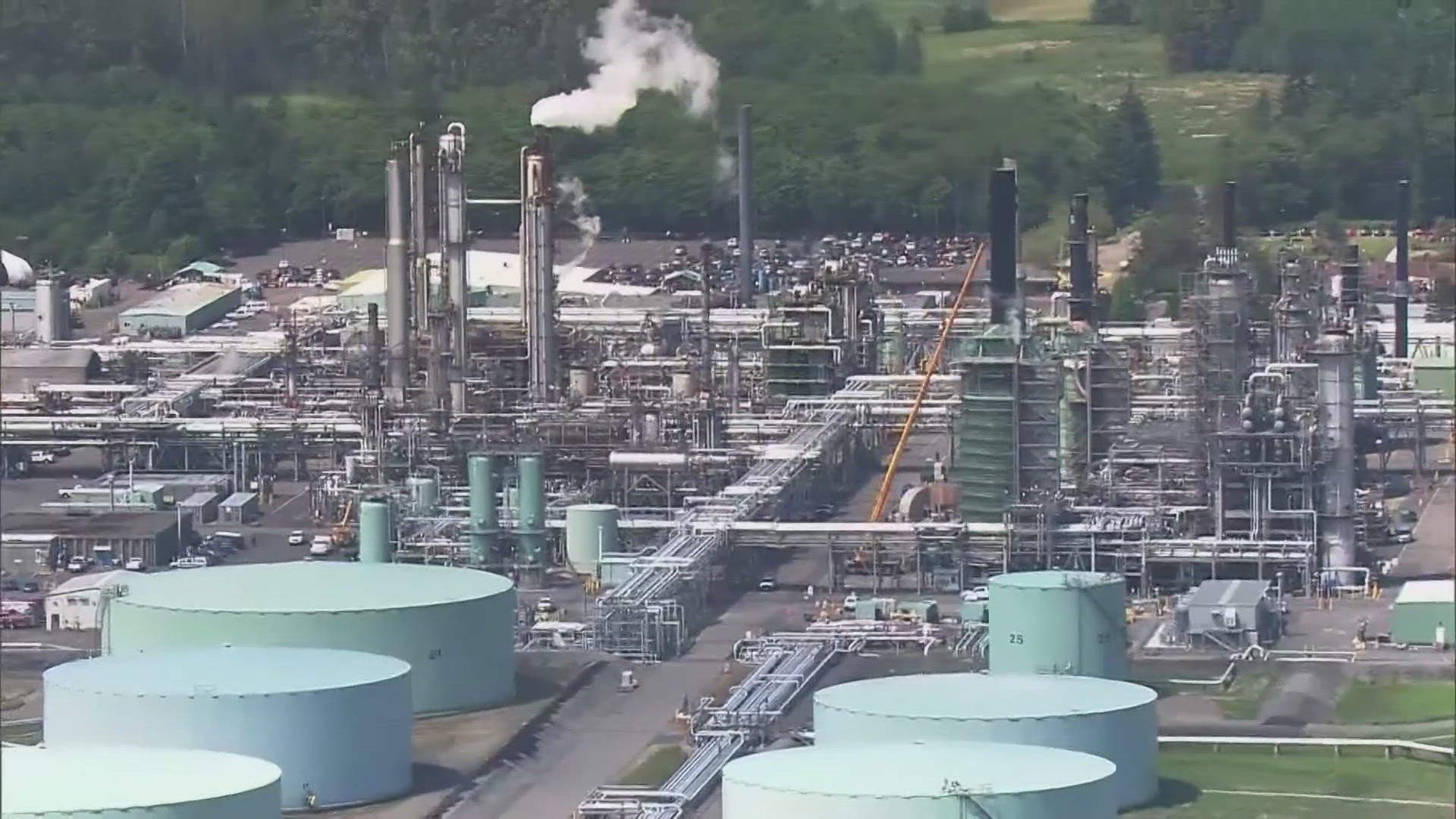SEATTLE — The Clean & Prosperous Institute (CPI), a group that works with government agencies and the private sector on behalf of measures meant to address climate change and reduce carbon, launched an interactive map Thursday it said details projects paid for by Climate Commitment Act (CCA) funding.
"What we hope is that this is going to shine the light on investments across the state that the Climate Commitment Act is making possible by turning smokestack emissions into investments in communities to transition to a clean energy future," said Michael Mann, CPI executive director.
Governor Jay Inslee signed the CCA into law in 2021. It created a "cap-and-invest" program, placing limits on greenhouse gas pollution and requiring businesses to purchase allowances if they go over that amount. Funding collected is meant to be allocated toward climate-related projects. The CPI kept track of lawmakers' allocations and designed the "Risk of Repeal" website to show where they are spending.
According to the site, projects range from a methane collection and conversion system for a Washington State University dairy in Pullman to hybrid electric vessel construction for Washington State Ferries.
It comes after some lawmakers proposed changes to the law and as voters have the chance to decide on I-2117, a measure that would repeal the program.
Brian Heywood is a sponsor of Let's Go Washington, which collected signatures for I-2117. He said the state exaggerates crises in certain areas and it should fund projects through pre-existing revenues.
Heywood said voters should have the chance to decide whether they want the act to remain in place.
"The sky is falling, the earth is about to burn up into a big ball of fire and if we don't do something right now, it's the end," Heywood said, referring to the attitudes of those who pushed for the act. "Again, okay, if that's your priority, you should allocate general budget, these should be your spending priorities, and they're not. They spend a bunch of other money on a bunch of other garbage and then go oh no, we need a new tax."
Mann said the "Risk of Repeal" effort is not in direct response to the initiative, and should not be described as a campaign against I-2117. He said it is meant to provide education about the impacts any repeal effort could have.
"Forest health projects to prevent wildfires, bicycle lanes, transit service, electric vehicle charging stations, culvert removal so we can ensure salmon and steelhead thrive in the Pacific Northwest," Mann said. "What's at risk is billions of dollars in investments that are going to help make our air quality better, water cleaner, and our communities able to thrive in a low carbon economy."

